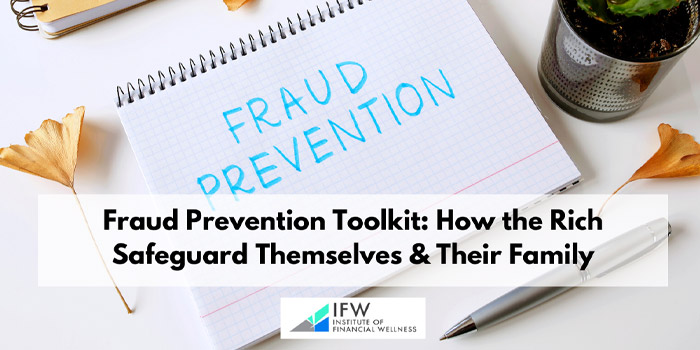Are you confident your finances and personal information are truly safe? Discover how to outsmart fraudsters, protect your sensitive data, and safeguard your family’s wealth with powerful prevention tools. Your security starts here!
Be sure to request your retirement score today with the Institute of Financial Wellness (IFW) to see how on-track you are with your retirement goals!
Key Takeaways
- Stay alert—fraud comes in many shapes, from identity theft to online scams.
- Security measures like two-factor authentication, credit monitoring, and identity theft protection can protect against fraud.
- Quickly report any suspicious activity to your bank and the Federal Trade Commission to reduce the impact of fraud and prevent more losses.
For additional financial resources, visit the IFW site or attend the IFW Retirement Score Live Webinar to gain valuable insights and strategies from industry experts.
Understanding Fraud
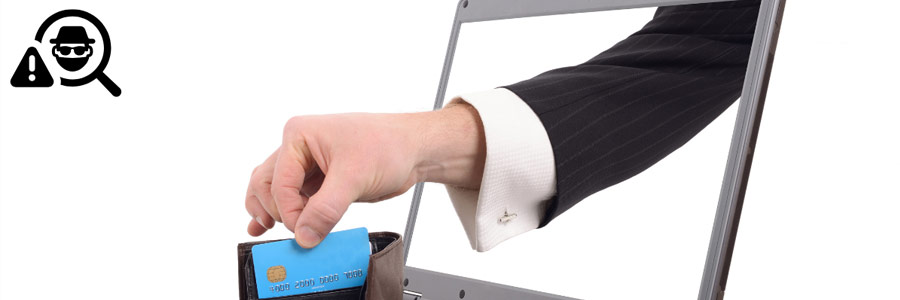
Is your guard up against fraud?
From identity theft to online shopping scams, fraud can strike in many forms, causing serious financial and personal harm.
Knowing how fraud works is your best defense! By understanding the different types of fraud, you can take steps to protect yourself and your family.
Types of Fraud:

Fraud comes in many forms:
- Identity theft: Probably the most common, this is where criminals use stolen personal information to commit fraud, such as opening new accounts or making unauthorized purchases.
- Credit card fraud: Another common issue, this is where thieves steal credit card information to make unauthorized purchases, either online or in person.
- Online shopping scams: Scammers create fake websites or marketplaces to trick consumers into making online purchases. These scams often involve advertisements for popular products at unbeatable prices to lure unsuspecting buyers.
- Employment fraud: Scammers pretend to be real employers, offering high-paying jobs or easy work-from-home positions. They may ask for personal details like your Social Security number or bank info (1).
- Insurance fraud: Insurance fraud happens when someone lies or gives false information to an insurance company to get benefits or payouts they don’t deserve. Both policyholders and service providers can commit this fraud (2).
- Phishing scams: Scammers trick people into giving personal information, like passwords or credit card numbers, by pretending to be legitimate organizations, often through fake emails (3).
Impact of Fraud:

If you’re still reading, chances are you or someone you know has been affected by fraud or nearly fallen victim to it. No need to feel bad; it’s very common—these people are professional tricksters!
Fraud affects millions of people.
2023 saw record high fraud levels with 353 million Americans impacted by data breaches.
Beyond money loss, fraud can seriously hurt your credit score and overall financial health.
Securing Your Financial Information
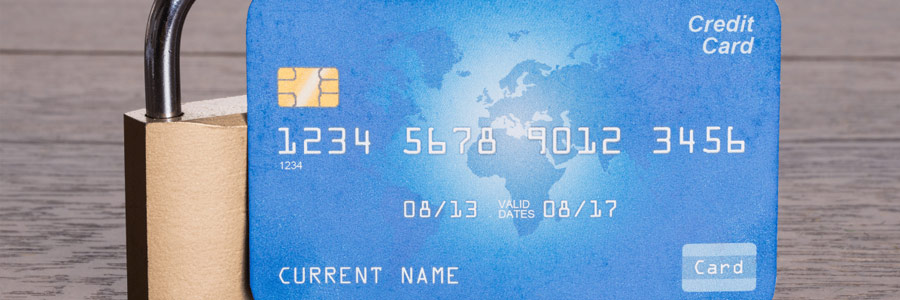
So, how does one protect themselves against fraud?
Well, the first step is properly securing your financial information. You can learn the ins and outs of fraud all day long, but if you have weak systems in place, you’ll continue to be vulnerable.
This involves a combination of the following:
- Protecting sensitive documents
- Using strong passwords
- Enabling two-factor authentication
For additional protection, you can use credit monitoring tools and purchase identity theft protection plans. These protection plans, which often include insurance coverage up to $1 million, can help recover losses in the event of fraud.
Protecting Sensitive Documents:
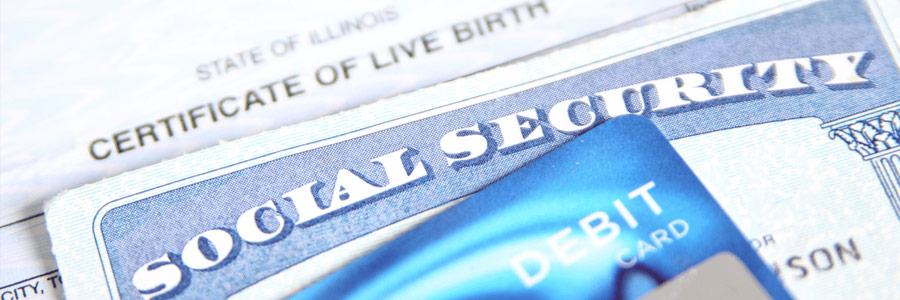
Store sensitive documents in a locked, secure place. Don’t take them out in public unless necessary, and be sure to shred old documents with even the smallest bit of personal information to keep your data safe.
Remember, it doesn’t take much—just a name and address can give scammers a foothold to steal your identity. Being cautious with your information is essential to protecting yourself from fraud.
Using Strong Passwords:
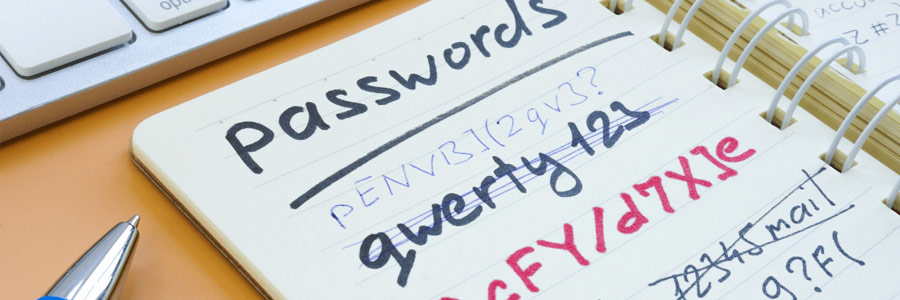
Using strong passwords may seem basic to some, but this is a key tool in securing your online accounts.
It’s also important that you remember to change your passwords every 3 months. Choose strong, unique passwords for each account and avoid reusing passwords across different sites.
Pro Tip: Use a password manager to keep track of all your different passwords.
Enabling Two-Factor Authentication:
Two-factor authentication (2FA) adds an extra layer of security by requiring a second verification method, like a text message or an authentication app, in addition to your password. This is a quick and super easy tool that makes it much harder for unauthorized users to access your accounts.
Monitoring and Managing Credit Reports
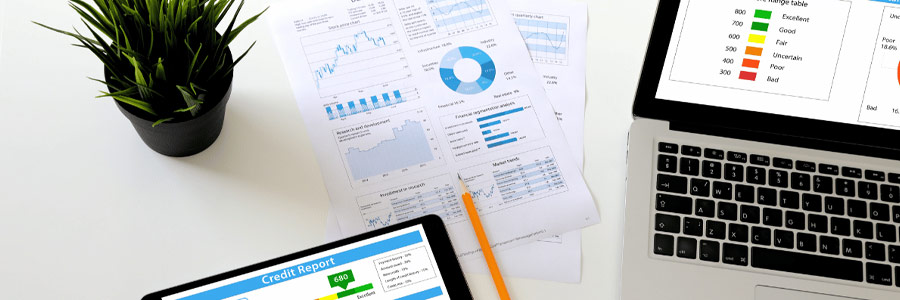
Regularly checking your credit reports is so crucial for spotting unauthorized transactions and preventing fraud. Credit reports show all of your financial activities, so reviewing it frequently means that it will be easy to spot suspicious activity and prevent credit card fraud.
Setting up fraud alerts tells creditors to verify your identity before opening new accounts, which is a smart strategy. This proactive approach helps reduce the risks of credit card fraud and other financial crimes—something everyone, including the wealthy, should prioritize to protect their assets.
So, don’t be lazy—make sure to set up fraud alerts and be sure to conduct regular credit card report reviews to catch unauthorized transactions or potential identity theft early.
Online Security Measures
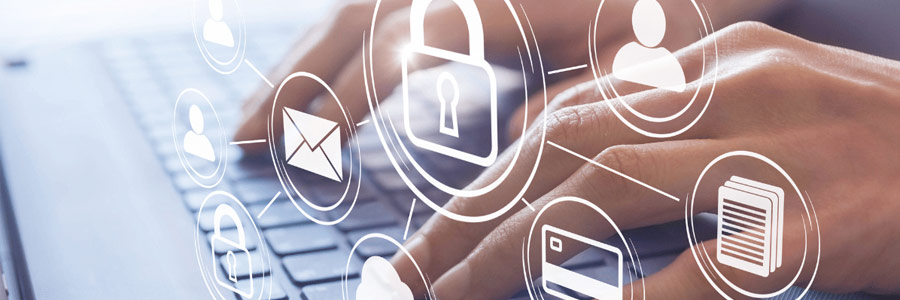
In this digital age, thankfully, there are many online security measures we can take to protect ourselves from fraud.
Secure Online Shopping:
When shopping online, make sure the website address starts with ‘https://‘ to guarantee a secure and encrypted connection.
Also, be sure to verify the reputation of merchants before making purchases and opt for a credit card or PayPal for transactions, as they offer better fraud protection compared to debit cards.
This prevents unauthorized purchases and online shopping scams.
Avoiding Phishing Scams:

Phishing scams are common tactics used by fraudsters but they are avoidable!
Always scrutinize a sender’s email address closely and avoid clicking on links or providing personal information in response to unsolicited messages.
Real organizations typically do not create a sense of urgency in their communications, so be careful with messages of that nature.
Using VPNs and Secure Connections:
It’s best to try to avoid using public WiFi when possible. If not, be sure to use a VPN.
A Virtual Private Network (VPN) encrypts your internet connection and prevents hackers from intercepting sensitive information.
Mobile Device Protection
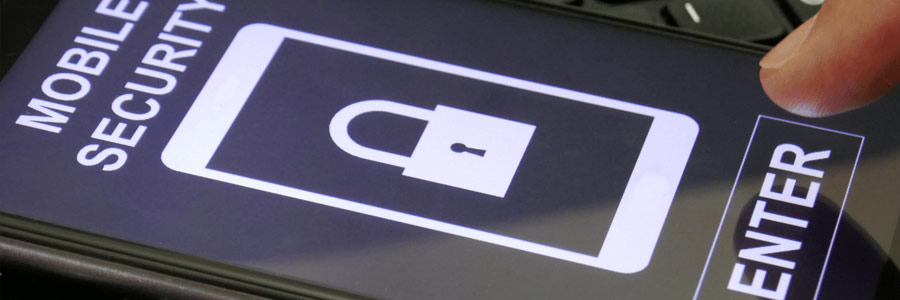
When protecting against fraud, we need to make sure all of our bases our covered. In this case, all of our devices, specifically our phones.
Enabling Biometric Authentication:
Biometric authentication uses unique physiological or behavioral characteristics, such as fingerprints or facial recognition, to verify identity.
This method not only increases security but also enhances user experience by providing quick and secure access to your phone or certain apps.
Regular Software Updates:
Regular software updates are also important for overall security. Outdated software can lead to vulnerabilities, making systems an easy target for fraud and cyber attacks.
Pro Tip: Have your updates automated so you can rest assured that you’re always protected with the latest security technologies.
What Do I Do If I Suspect Fraud?

First off, do not panic. Fraud is 100% something you can bounce back from and quickly too.
Take action and be quick about it!
If you suspect fraud or have experienced it, it’s important to act quickly and report the incident. As soon as you suspect any fraudulent activity, do the following:
- Contact & notify your bank or credit card issuer
- Once confirmed as fraudulent, report the incident to the Federal Trade Commission (FTC)
- Change your passwords
- Monitor your accounts for the weeks that follow
Utilizing Fraud Prevention Tools
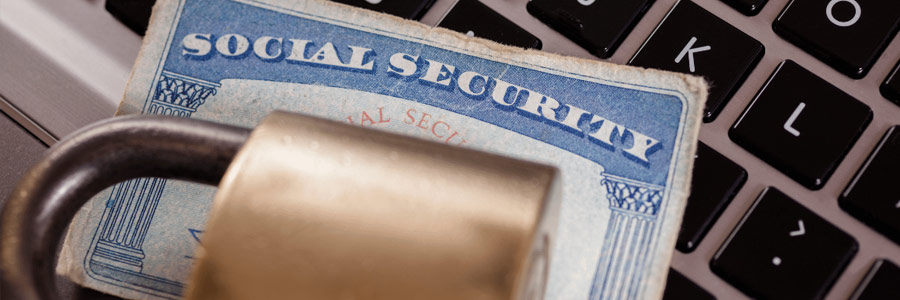
The astonishing increase in fraud in the last two years highlights the need for strong preventative measures. Here are just a few:
Identity Theft Protection Plans:
Identity theft protection plans serve as a way to protect your personal information against identity theft. These plans often include features such as credit monitoring, identity restoration services, and identity theft insurance.
Dark web monitoring, which scans for stolen personal information, is another valuable feature of these plans.
Fraud Detection Software:
This software monitors transactions in real-time, flagging suspicious transactions for further review or halting them altogether.
These systems aim to reduce false alarms while making sure real transactions go through easily.
Summary

Fraud prevention does require continuous vigilance, but do not let this overwhelm you!
Once you understand the basics, it becomes second nature.
Simple habits like regularly checking your accounts, using strong passwords, and staying alert to suspicious activity will help you stay ahead of potential threats. The key is to stay proactive without stressing over every detail. With the right tools and awareness, protecting yourself from fraud becomes part of your routine, not an extra burden.
Frequently Asked Questions
How often should I check my credit reports?
You should check your credit reports at least once a year from each of the three major credit bureaus, preferably through AnnualCreditReport.com. This practice helps you stay informed about your credit status.
What is two-factor authentication, and why is it important?
Two-factor authentication is crucial for enhancing security as it requires an additional verification method beyond just a password, making it significantly harder for unauthorized users to gain access to accounts.
How can I protect my financial information while shopping online?
To protect your financial information while shopping online, always look for ‘https://’ in the website address and use reputable merchants. Opt for credit cards or PayPal for transactions to safeguard against unauthorized charges.
What should I do if I suspect fraud on my credit card account?
If you suspect fraud on your credit card account, immediately contact your bank or credit card issuer to report the suspicious activity and block any further unauthorized transactions. Act swiftly to protect your finances.

